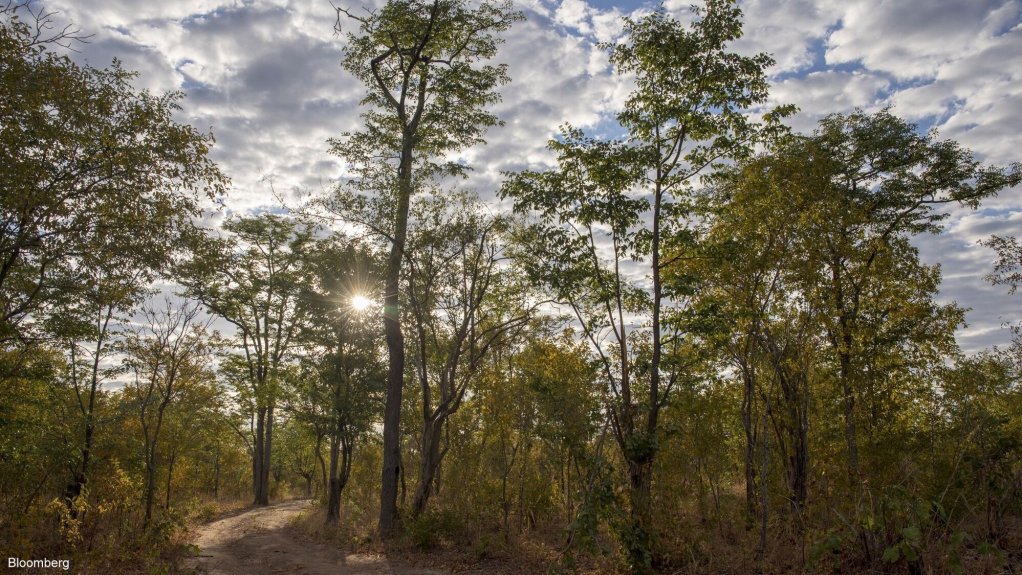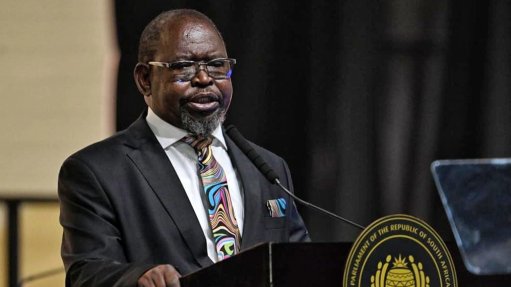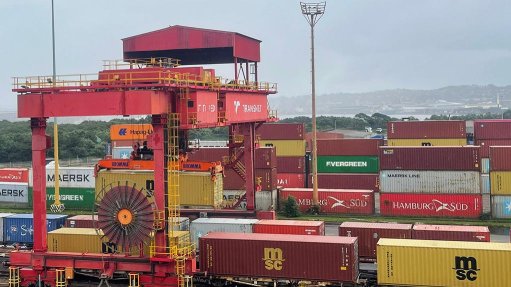South Africa’s Climate Philanthropy Pledge signs newest two members
Twelve local philanthropic funders have signed South Africa’s pioneering Climate Philanthropy Pledge, which is a significant show of collective commitment across the pledge’s eight pillars of action, including education and learning, influence and advocacy and the responsible use of endowments and assets.
This at a time of global uncertainty for sustainable development.
The latest independent funders to join include the Cyril Ramaphosa Foundation and The Harry Crossley Foundation.
Launched earlier this year as Africa’s first Climate Philanthropy Pledge, the initiative recognises the urgent need to respond to climate change as an issue that cuts across all funding focus areas and Sustainable Development Goals, and which is impacting on all sectors and facets of society.
“Perpetual climate change has indeed become the context in which development work takes place. With traditional development funding under pressure and with climate change negatively impacting on all development goals, private philanthropy is increasingly stepping in to help fill the gap and drive sustainable impact,” says Independent Philanthropy Association of South Africa (Ipasa).
A first for Africa, the South African Climate Philanthropy Pledge is the tenth regional philanthropy pledge to be formalised by the global philanthropic community, seeking ways to better coordinate resources towards more sustainable development outcomes.
South Africa’s Climate Philanthropy Pledge was developed in 2024 after months of consultation and dialogue between partners and key experts and is being steered by Ipasa and its 65 funding organisation members in South Africa.
Ipasa executive director Louise Driver says that, now that members have signalled their willingness to unite behind climate action, the next pivotal step will be to develop an implementation guide that will assist members in embedding climate as a key risk and consideration in all their funding decisions.
“We’re excited by the uptake so far, because it shows how climate change is increasingly being viewed as a critical issue.”
Driver explains the Climate Philanthropy Pledge is a blueprint for how the philanthropic community can act collectively across eight focus areas.
These include members promoting education on the intersection of climate change with funders’ initiatives, integration of climate considerations into funders’ work, commitment of resources to climate initiatives, responsible investing of endowments and assets, responding to the unique positioning of South African reality in relation to the climate agenda, and promoting advocacy for climate action and transparency.
The goal of the climate pledge is to foster collaboration and knowledge sharing and promote sustainability through supporting adaptation and systems change investments to ultimately achieve climate resilience.
Not all independent funders from the Southern Africa region are new to climate philanthropy. The African Climate Foundation (ACF), now in its fifth year, has been a pioneering partner for the pledge by providing seed funding for its consultation and development and can now reflect on the efficacy of climate finance on development outcomes, based on its track record of grant making.
“What we have learned is that as long as climate change is viewed as an external shock, rather than an issue that has to be integrated into everything we do, we will be eroding our development gains in health, food security and education,” explains ACF founder and executive director Saliem Fakir.
PRACTISING CLIMATE ADVOCACY
This recognition of the need to embed climate into development is now being translated into practice by several Ipasa members.
For example, the Oppenheimer Memorial Trust has launched the Climate Justice in Education Project in partnership with United Nations Educational, Scientific and Cultural Organization and the University of Pretoria, aiming to better prepare South Africa’s school system for the climate crisis by addressing the right to education.
The initiative reflects a growing shift among philanthropic organisations towards embedding climate considerations into core development work.
Similarly, the Grindrod Family Centenary Trust, which has long advanced early childhood development (ECD) in KwaZulu-Natal – has taken on an advocacy role by convening stakeholders in the province to explore the intersection of climate change and ECD.
One gathering focused on sharing innovative tools and strategies, and building partnerships to support climate-resilient ECD programmes.
Taking a more grassroots approach, the Environmental Justice Fund, another Ipasa member, is focusing on strengthening community-based organisations who they see as the first responders to climate disasters in local communities.
The work is also exploring indigenous knowledge systems and tapping into how communities have been adapting for centuries to cycles of flood and drought.
GLOBAL CONVERSATION
During a recent Group of Twenty (G20) event – the F20 Climate Solutions Forum – Ipasa co-hosted a side event where members shared that climate action must be driven from the ground up – elevating local voices, youth activism and indigenous knowledge systems.
“Philanthropy should not only address technical challenges but be rooted in the moral imperatives of justice and equity. Ford Foundation natural resources and climate change programme officer Alan Wallis emphasised the need for philanthropy to act as catalytic capital — not merely to fill gaps left by government, but to unlock larger funding streams through innovation and risk-taking,” Ipasa states.
As convenor of this year’s G20 Summit, South Africa will host a series of stakeholder meetings for governments, business and civil society under the theme, ‘Solidarity, Equality and Sustainability’.
While Africa is warming at twice the rate of the Global North, there are many shared experiences that South Africa can draw on.
Climate change has led to fiercer and more frequent wildfires, where Cape Town, California and the Mediterranean are bearing the brunt and can all benefit from exchanging ideas.
In this spirit of global exchange, Ipasa recently participated in the European Philanthropy Coalition’s Climate session at the Philanthropy Europe Association conference in Portugal, advancing discussions on commitments to advance just and equitable climate outcomes.
The networking and knowledge sharing between Ipasa members has ultimately emerged as an important drawcard to join the Climate Philanthropy Pledge.
Cyril Ramaphosa Foundation CEO Melanie Spencer concludes that the Climate Pledge is providing their organisation with a timely opportunity to commit and contribute to climate action in solidarity with others.
Article Enquiry
Email Article
Save Article
Feedback
To advertise email advertising@creamermedia.co.za or click here
Press Office
Announcements
What's On
Subscribe to improve your user experience...
Option 1 (equivalent of R125 a month):
Receive a weekly copy of Creamer Media's Engineering News & Mining Weekly magazine
(print copy for those in South Africa and e-magazine for those outside of South Africa)
Receive daily email newsletters
Access to full search results
Access archive of magazine back copies
Access to Projects in Progress
Access to ONE Research Report of your choice in PDF format
Option 2 (equivalent of R375 a month):
All benefits from Option 1
PLUS
Access to Creamer Media's Research Channel Africa for ALL Research Reports, in PDF format, on various industrial and mining sectors
including Electricity; Water; Energy Transition; Hydrogen; Roads, Rail and Ports; Coal; Gold; Platinum; Battery Metals; etc.
Already a subscriber?
Forgotten your password?
Receive weekly copy of Creamer Media's Engineering News & Mining Weekly magazine (print copy for those in South Africa and e-magazine for those outside of South Africa)
➕
Recieve daily email newsletters
➕
Access to full search results
➕
Access archive of magazine back copies
➕
Access to Projects in Progress
➕
Access to ONE Research Report of your choice in PDF format
RESEARCH CHANNEL AFRICA
R4500 (equivalent of R375 a month)
SUBSCRIBEAll benefits from Option 1
➕
Access to Creamer Media's Research Channel Africa for ALL Research Reports on various industrial and mining sectors, in PDF format, including on:
Electricity
➕
Water
➕
Energy Transition
➕
Hydrogen
➕
Roads, Rail and Ports
➕
Coal
➕
Gold
➕
Platinum
➕
Battery Metals
➕
etc.
Receive all benefits from Option 1 or Option 2 delivered to numerous people at your company
➕
Multiple User names and Passwords for simultaneous log-ins
➕
Intranet integration access to all in your organisation




















